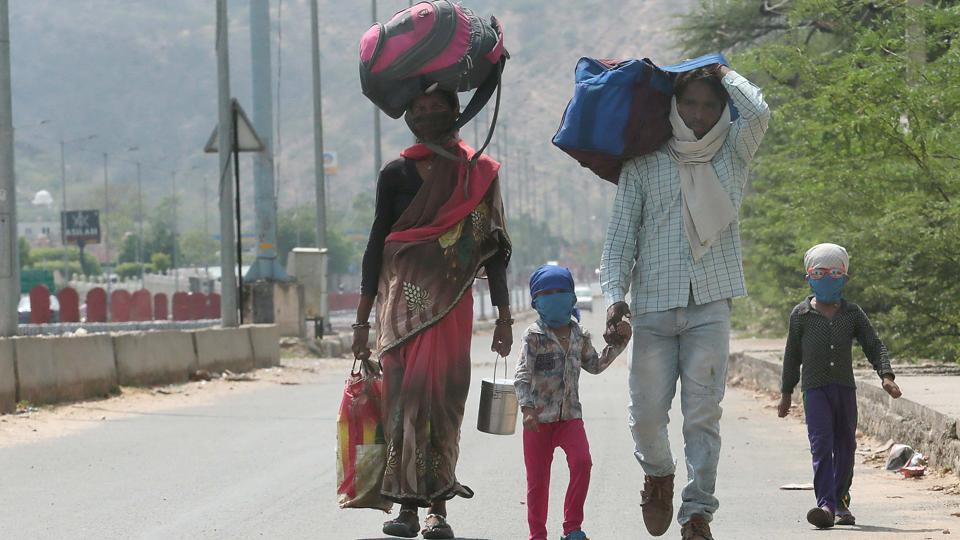prasad1
Active member
09/MAY/2020
Two days ago, the Karnataka government, after a meeting with prominent builders, announced that it would not facilitate the travel of migrant workers back home on the grounds that their labour was needed to restart the economy. This declaration attracted widespread criticism and has been suspended for the time being. However, in neighbouring Tamil Nadu, the government is doing much the same thing covertly, without any open declaration.
I’m part of a volunteer group, the Chennai Citizens COVID Fund for Migrant Labour: this came together soon after the first lockdown was announced in order to reach out to migrant workers stranded in different parts of Tamil Nadu. Over the last six weeks, we have been in touch with roughly 18,000 workers. Over the past week, the group has been inundated with calls from workers desperate to go home and asking how they can do this.
After the official announcement that state governments were free to arrange transport for stranded workers, Tamil Nadu appointed a special officer to coordinate travel arrangements. In practice, there is complete lack of information and widespread chaos. Two helplines were set up, but the staff handling them spoke only in Tamil and had no information to pass on. No public announcement of any process to count or register those who wanted to return was made and no schedule of train departures provided.
The government took several days to create an online form for workers asking to go. This form is in English: it asks workers to provide an email address among other things. It was originally prepared for Indians stranded outside the country and is being reused for migrant workers without any regard for their actual circumstances.
Meanwhile, migrant workers are trying to do whatever they can to publicise their desire to go back home. Some groups went to offices of the Chennai Municipal Corporation or police stations, others to the office of the district collector or local tahsildar (depending on where they happen to be). At most of these places they were turned back with threats. In some cases, their names etc. were taken down, but they were not informed of what, if anything, would happen next.
It is certainly not the case that the Tamil Nadu government cannot act efficiently or lacks the capacity to send workers home. It is clear its actions (or non-actions) are designed to keep them penned up in their workplaces in order to help employers in the industrial and construction sectors. An official told one of our volunteers on condition of anonymity that those in charge of making travel arrangements had been ordered to go slow until the government figured out ways of restarting work. It has not hesitated to use the police to “persuade” workers to return to their workplace camps.

 thewire.in
thewire.in
Two days ago, the Karnataka government, after a meeting with prominent builders, announced that it would not facilitate the travel of migrant workers back home on the grounds that their labour was needed to restart the economy. This declaration attracted widespread criticism and has been suspended for the time being. However, in neighbouring Tamil Nadu, the government is doing much the same thing covertly, without any open declaration.
I’m part of a volunteer group, the Chennai Citizens COVID Fund for Migrant Labour: this came together soon after the first lockdown was announced in order to reach out to migrant workers stranded in different parts of Tamil Nadu. Over the last six weeks, we have been in touch with roughly 18,000 workers. Over the past week, the group has been inundated with calls from workers desperate to go home and asking how they can do this.
After the official announcement that state governments were free to arrange transport for stranded workers, Tamil Nadu appointed a special officer to coordinate travel arrangements. In practice, there is complete lack of information and widespread chaos. Two helplines were set up, but the staff handling them spoke only in Tamil and had no information to pass on. No public announcement of any process to count or register those who wanted to return was made and no schedule of train departures provided.
The government took several days to create an online form for workers asking to go. This form is in English: it asks workers to provide an email address among other things. It was originally prepared for Indians stranded outside the country and is being reused for migrant workers without any regard for their actual circumstances.
Meanwhile, migrant workers are trying to do whatever they can to publicise their desire to go back home. Some groups went to offices of the Chennai Municipal Corporation or police stations, others to the office of the district collector or local tahsildar (depending on where they happen to be). At most of these places they were turned back with threats. In some cases, their names etc. were taken down, but they were not informed of what, if anything, would happen next.
It is certainly not the case that the Tamil Nadu government cannot act efficiently or lacks the capacity to send workers home. It is clear its actions (or non-actions) are designed to keep them penned up in their workplaces in order to help employers in the industrial and construction sectors. An official told one of our volunteers on condition of anonymity that those in charge of making travel arrangements had been ordered to go slow until the government figured out ways of restarting work. It has not hesitated to use the police to “persuade” workers to return to their workplace camps.

'You Can't go Back': Migrant Workers Told in Tamil Nadu
After conducting a survey of a small sample from our database, we found that 95% of respondents wanted to go back home; 75% wanted to go home even if they were offered work. 63% of respondents were owed wages from before the lockdown.






